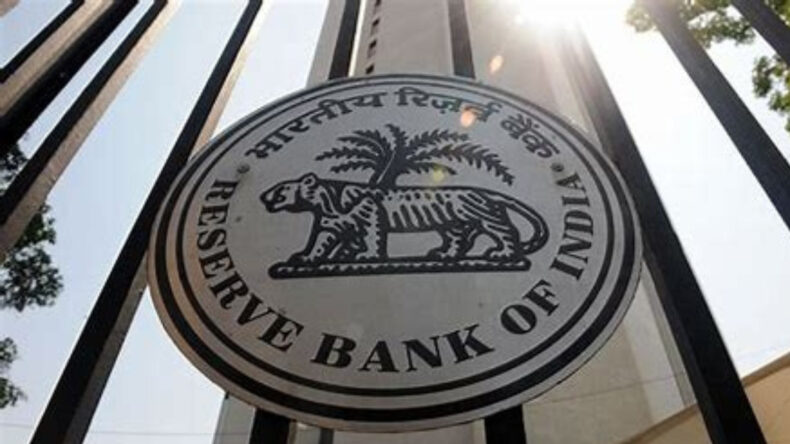The State Bank of India (SBI), the largest nationalized bank in India, has recently made an important announcement regarding the exchange of ₹2000 notes at its branches. Beginning from the 23rd of May and continuing until the 30th of September 2024, members of the public will have the opportunity to exchange their ₹2000 notes hassle-free, without the need for identity proof or filling out requisition slips. This initiative by the SBI aims to facilitate a smooth and convenient process for individuals seeking to replace their high-denomination notes. Notably, the exchange limit for each transaction has been set at ₹20,000, ensuring that individuals can conveniently exchange their ₹2000 notes within a reasonable amount.
Representational Image
Source : FreeImage
The decision by the SBI to offer this exchange facility aligns with the Reserve Bank of India’s (RBI) “Clean Note Policy,” which focuses on ensuring the availability of good quality banknotes to the public. In line with this policy, the RBI has decided to withdraw ₹2000 denomination notes from circulation.
This decision is based on observations that indicate a limited usage of ₹2000 notes in everyday transactions. However, it is important to emphasize that the ₹2000 notes will remain legal tender until the 30th of September 2024, allowing individuals ample time to exchange or deposit them.
Starting from the 23rd of May, the RBI, along with its 19 regional offices and other banks, including the SBI, will begin accepting ₹2000 notes for exchange with lower denomination ones. This exchange process provides individuals with the flexibility to replace their ₹2000 notes with more commonly used denominations, ensuring that their currency aligns with their day-to-day needs.
Additionally, individuals have the option to deposit their ₹2000 notes directly into their bank accounts without any restrictions on the deposit amount. This facilitates a seamless transition for those who prefer to convert their high-denomination notes into digital currency or maintain them in their accounts.
The SBI has taken measures to simplify the exchange process for the convenience of the public. Individuals who wish to exchange their ₹2000 notes are not required to provide identity proof or fill out requisition slips, as long as the exchange amount does not exceed ₹20,000 per transaction. This streamlined approach eliminates unnecessary paperwork and makes the exchange process more accessible and efficient for individuals.
Since their introduction in 2016 during the demonetization drive, ₹2000 banknotes have played a significant role in the Indian economy. However, as these banknotes near the end of their estimated lifespan of four to five years, the RBI has provided insightful statistics. It has been observed that around 89% of the ₹2000 denomination banknotes were issued before March 2017. As of March 31, 2018, these notes accounted for 37.3% of the total notes in circulation, with a value of ₹6.73 lakh crore.
However, as of March 31, 2024, their value has declined to ₹3.62 lakh crore, constituting only 10.8% of the total notes in circulation. This reduction in circulation highlights the decreasing prominence of ₹2000 notes in day-to-day transactions and further justifies the decision to withdraw them from circulation.
In terms of the exchange and deposit limits, individuals can exchange their ₹2000 banknotes for lower denominations up to a maximum of ₹20,000 per transaction. Deposits of ₹2000 notes are also allowed without any restrictions, as long as individuals comply with the applicable Know Your Customer (KYC) norms and other regulatory requirements. This ensures that individuals have flexibility in managing their currency holdings.
To ensure accessibility and convenience, the RBI has announced that the exchange facility for ₹2000 banknotes will be provided free of cost. This means that individuals can exchange their high-denomination notes without incurring any charges or fees.
Representative Image
Image Source: Shutterstock
Additionally, even non-account holders will have the opportunity to exchange their ₹2000 banknotes, up to a limit of ₹20,000 per transaction, at any bank branch. This provision aims to ensure that the exchange process is accessible to all members of the public, regardless of their banking status.
To further enhance accessibility, the RBI has introduced the provision of exchanging ₹2000 banknotes through Business Correspondents (BCs). Account holders can conveniently exchange up to ₹4000 per day through BCs, providing a convenient alternative to traditional bank branches.
In conclusion, the SBI’s notice regarding the exchange of ₹2000 notes reflects the RBI’s Clean Note Policy and seeks to facilitate a seamless process for individuals looking to exchange their high-denomination notes. This initiative ensures the availability of good quality banknotes and allows individuals ample time to transition to lower denomination currency or digital modes of payment.
By offering a hassle-free exchange process and eliminating the need for identity proof or requisition slips, the SBI aims to make the process convenient for all members of the public. It is a proactive step towards aligning currency circulation with the evolving needs of the Indian economy.












